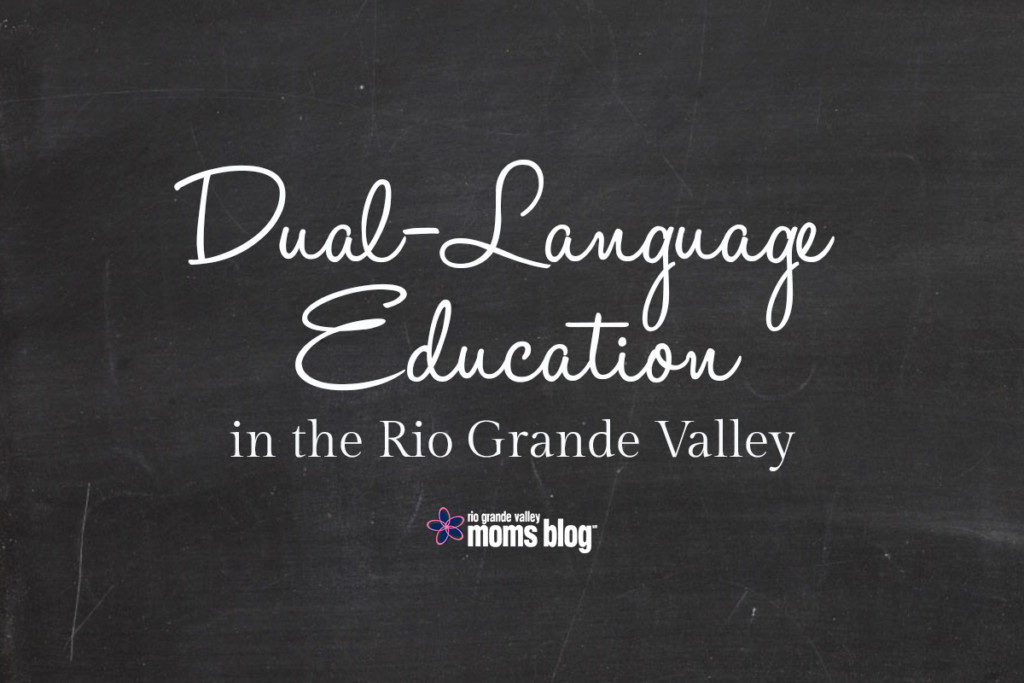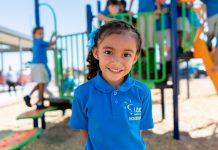Charlemagne wrote that “to know two languages is to possess a second soul.” I like to believe that my children, in whom I have planted and am nurturing the seeds of two languages, are growing up with two souls.
While neither my husband nor I speak Spanish as a first language, we have made the decision to raise our kids in Spanish. My 5-year-old speaks Spanish and English, with many thanks to his Spanish-immersion preschool (Framboyant, where the 3-year old still attends) and is now in a dual-language kindergarten in McAllen at Sanchez Elementary. He has two personalities. He is sweet and loving in Spanish; logical and rational in English. These are both good qualities, and I am glad he gets to express both.
It has been worth the effort to find the right schools for my kids.
Bilingual vs. Dual-Language
I would like to take a moment to give a few definitions when it comes to the different approaches to education in more than one language.
Traditional “bilingual” programs in this country instruct students in Spanish just until they have enough English to transfer to all-English classrooms. ESL classrooms are considered by many as remedial — they mark the children out as “limited.” ESL’s goal is to get Spanish-speaking children to speak English (and only English) as quickly and proficiently as possible.
Many of my university students were part of either bilingual or ESL instruction. When many of them get to UTRGV, where I teach, most of them have forgotten their mother tongue. Or, more accurately, they were made to forget it. My students are surprised when I encourage them to speak Spanish in the classroom. I truly want them to embrace (and not undervalue) their native tongue.
Author Richard Rodriguez called Spanish a private language, one that is spoken in the home but not in the street. As a professor and as a mother, I am working to change that.
I want my kids to be fully bilingual. And I don’t want them to have to work as hard as I did to acquire a second language.
The dual-language program became a popular form of bilingual education in the 1990’s. As opposed to the standard bilingual program, dual-language intends for students to master both English and Spanish.
The idea behind the dual-language program is the opposite of the traditional bilingual (early exit) program. Dual-language instruction aims to allow students to read, write, and speak in both languages fluently. The week is split into Spanish days (M,W,F) and English days (T,Th). Students begin language arts in their native tongue, and in second grade begin to formally learn reading and writing in their second language. Instruction in other subjects like math and science is divided evenly and taught in both languages.
Studies have shown that students in dual-language programs do better at language comprehension and the subjects themselves. Dual-language students score higher on the exams than non-dual language students, even when the exam is conducted in their non-dominant language.
 Dual-Language Education in the RGV
Dual-Language Education in the RGV
PSJA currently has the oldest dual-language program, and it goes through high school. Dual-language high school graduates who enter UTRGV will have an advantage. The University now has as part of its vision to be a bilingual, bicultural, and biliterate university. The other districts that have dual language in some or all of their elementary schools are: McAllen (next year it will also be in Fossum Middle School), La Joya, Mission, Rio Grande City, Harlingen, and Hidalgo.
The earlier you get your child immersed in a second language, the easier it will be for him/her to learn it. You don’t need to speak Spanish at home for your kids to learn it. Nor do you have to be zoned to a dual-language campus. McAllen ISD, for example, will bus your kids to a dual-language campus if you are not zoned to one.
Is there any part of you that wishes you spoke Spanish? Do you speak Spanish but your child is answering back in English? I encourage you to consider a dual-language program.
Back to Charlemagne: let’s give our children the ability to express themselves doubly by giving them more than one language to do it in.
If you would like to hear more about the prevalence and history of RGV students losing their Spanish, I am giving a presentation on language at UTRGV’s Edinburg campus on Feb 27 in the Visitor’s Center at 5:30pm, as part of UTRGV’s FOLD exhibit. The presentation is free and open to everyone.














Thank you for your post. We live in Brownsville and we’re looking for a fun Spanish language camp for July 2018 for our two little boys. We’re working parents willing to make the financial sacrifice but there’s really no options here. I want to avoid an outcome where my sons turn 18, go away to college, and are unable to speak Spanish — despite having grown up on the border! If you’re aware of any good programs or camps, please let me know.
Chris
[email protected]
Thanks Chris, I don’t know of any camps in Brownsville, but if you want to be on the PUEDE (Padres unidos para educaccion dual excelente) let me know and I will put you on.
Hello, I have a 5th grade child who needs to learn English to be able to pass his classes. The school he is in only gives ESL to 4th grade kids. Does anyone know a program for him in Mission Texas